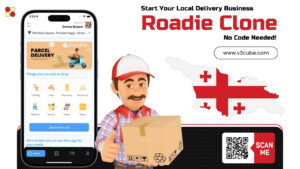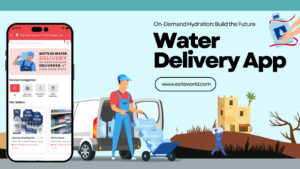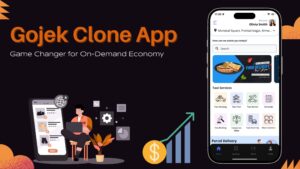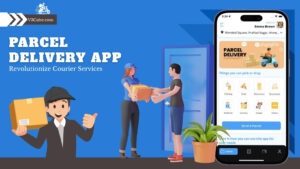Apple is known to have strict regulations to uphold the quality of Clone apps in the app store. It isn’t against apps offering similar features and services; however, the guidelines are particular about the quality and look of the app. In this blog, you will find the top reasons behind iOS Clone App rejection on the App Store.
Introduction
If you ask any developer, they must’ve encountered an App Store rejection at some point in their career. However, many of the rules that govern the App Store have changed over the years. Therefore, it is best to keep an eye on the news related to any such changes. For starters, Apple provides comprehensive App Store guidelines and uses them for standardization and rejection purposes.
If you religiously follow the guidelines, then you don’t have to worry about rejection. Still, many other reasons emerge as the source of app rejection, which everyone should keep in mind before pushing the app for beta testing.
Why you face iOS Clone App Rejection?
Clone apps are often labelled as duplicate apps as their services replicate some other popular app. In a blog post, Apple said that impersonating an app is a violation of their guidelines. The reason behind this change came after many ChatGPT clones flooded the App Store earlier this year.
However, the crux of the matter is that your app must provide lasting value. For instance, apps like Flashlight or Fart Sound would be rejected because they don’t provide value as compared to other unique apps.
If you are planning to start a business in a saturated category where there are plenty of others just like it, make sure that its app provides value through its services. You can do this by bundling various services and features into one super app.
Other Top Reasons Behind Rejection
Apple’s App Review team reviews over 100,000 app submissions every week. It doesn’t matter how attractive or feature-loaded your app is; Apple demands a fluid-running app. That’s why most entrepreneurs opt for native app development and use programming languages like Swift for iOS app development. By opting for native, the navigation seamlessly blends with the iOS device. It makes the app quicker to load without any distractions.
Moreover, it prevents the app from crashing and has better hardware and software compatibility. But it doesn’t mean that you cannot opt for a cross-platform or hybrid development approach. There are many other reasons behind rejection, as mentioned below:
Not Following API guidelines
Apple will reject your app if you use a private API because they don’t want third-party Clone apps to stop working when Apple comes with a certain API change. That is why APIs are marked ‘private’, as many developers have faced iOS clone app rejection when Apple finds out sooner or later. To understand the reason behind this context, APIs are the building blocks of a mobile app but are often misused to access a user’s sensitive data. Beginning in the spring of 2024, App Store Connect will reject any app using an API without explanation.
Shady Privacy Policy
Your app’s privacy policy should be visible to all users and accessible during the registration process. To understand a bit better about the placement, read the privacy policy when you are curating the app’s documentation and data transparency information. Moreover, Apple urges developers to prioritize convenience features that align well with privacy features. For instance, by default, Apple’s cloud services have a saved key, so if users lose their login information, they have a way to recover it. Therefore, your app must have a privacy-focused ecosystem infused with convenience features as a step ahead for greater functionality.
Improper Rating
To help lock out certain apps for content on the App Store, Apple demands that all developers list the ratings of their apps during the submission process. When selecting ratings, ensure it demonstrates all the content accessible in the app, but make sure that the content does not seem inappropriate. Moreover, by sharing the right content ratings, it becomes easy for the tester to understand whether the app is suitable for the age group or not.
Incomplete Build
If you plan to build Clone apps and include in-app purchases to unlock premium features, be careful, as Apple could consider it a ‘lite’ or ‘demo’ app. This is because many clone apps often advertise themselves as offering complete functionality but come with limited access after installation. Therefore, Apple can reject your app during the early stages of the review process if it doesn’t provide a way to unlock full access for the users. The key to avoiding this issue is transparency, which means that you have to clearly describe everything about the app without exaggerating its features.
Using Identifier without Knowledge
iOS provides an advertising identifier (IDFA) for Clone apps that tracks data for customized advertising. However, upon App Store submission, you’re required to inform App Review whether your app uses this identifier or not. Failing to do so will result in an automatic ban since it violates many App Store guidelines and privacy laws. This is because, by assigning a device to a single IDFA, advertisers are able to accurately attribute and track iOS users. However, once a device is running iOS 14.5 or later, advertisers are required to request permission to access the IDFA to start tracking iOS users.
False App Previews and Screenshots
Uploading screenshots and app previews to App Store Connect has always been a dubious proposition for app testers. Apple demands the highest-resolution screenshots instead of the scaled-down versions of different screens. Moreover, the screenshot and preview of the app should be aligned with the information submitted by developers in the listing. If even the slightest detail appears off, it’s almost certain that the review process will result in the rejection of your app.
Not Providing a Demo Account
Suppose your app requires login credentials such as a mobile number, social media, or Gmail. In that case, you’ll need to provide an active demo account for it. When submitting your app to the App Store, you must provide an active demo account and login information. Additionally, include any other necessary resources for the review of your app. However, there have been instances where Apply has contacted the developers to get the login credentials, thereby delaying the review process instead of rejecting it. You can create a demo account in App Store Connect under the ‘Demo Account’ section.
Conclusion
Apple only accepts clone apps for specific reasons. Therefore, it has been many times that you might have differing views on the reasons being put forward for your app rejection. Here, what you need to do is submit an appeal to speed up or improve the process by providing clarity in the policies. Most importantly, if the App Review team rejects your app, use App Store Connect to directly communicate with them. Indicate that you plan to address the issue in your next submission.






